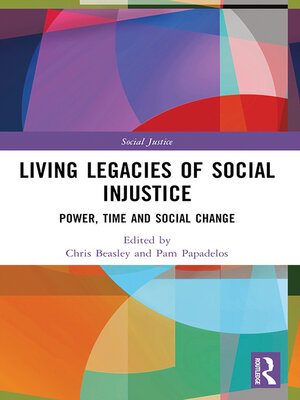Living Legacies of Social Injustice
ebook ∣ Power, Time and Social Change · Social Justice
By Chris Beasley

Sign up to save your library
With an OverDrive account, you can save your favorite libraries for at-a-glance information about availability. Find out more about OverDrive accounts.
Find this title in Libby, the library reading app by OverDrive.



Search for a digital library with this title
Title found at these libraries:
| Library Name | Distance |
|---|---|
| Loading... |
Through a wide range of international and interdisciplinary case studies, this book develops the notion of legacy, and in particular, 'living legacy'– that is, it explores power relations in the context of time as a means to considering and challenging social injustice.
Legacies of social injustice are very frequently erased, denied or declared redundant. Framed by the concept of 'legacy', this book does not conceive legacy as simply referring to relics of the past, or to cultural heritage practices and artifacts. Instead, the book focuses upon 'living legacies', understood as ongoing, actively engaged in the re-constitution of power relations, and influential in the development of alternative political imaginaries. Through a variety of studies from many different contexts—including Indigenous trauma in Australia, displacement in Beirut, women travellers in Scotland, and heteronormativity in Hollywood—the book draws not only upon historiographic, sociological, legal, political, cultural and other disciplinary approaches, but also specifically makes use of feminist and postcolonial perspectives. Foregrounding the legacies of inequality and marginalisation, it contributes to a re-thinking of power and social change in ways that together suggest potential means for unsettling and reimagining such legacies.
This book will appeal to an interdisciplinary range of readers with interests and concerns in the broad area of social justice, but especially to those working in sociolegal studies, sociology, gender studies, indigenous studies and politics.







